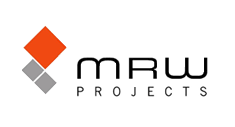Interview Questions for Contract Management Positions
Contract management is an essential component of any successful business. A skilled contract manager facilitates communication, ensures compliance, mitigates risk, and nurtures healthy relationships between a company and its vendors or clients. Hiring the right contract manager is crucial, and a well-planned interview is key to identifying the best candidate. Here are some interview questions for contract management positions that will help you identify the ideal candidate.
1. How do you prioritize your work when dealing with multiple contracts?
Contract managers must be skilled at managing multiple contracts simultaneously. A successful candidate should have a clear understanding of how to prioritize their workload and effectively manage their time.
2. How do you ensure compliance with contracts and legal requirements?
Compliance is a core responsibility of a contract manager. The candidate should have in-depth knowledge of the legal and regulatory requirements in their industry. They should also have a proven track record of implementing compliance programs and monitoring them efficiently.
3. What strategies do you use to negotiate contracts?
The ability to negotiate contracts skillfully is an essential skill for a contract manager. The candidate should have a comprehensive understanding of negotiating tactics and strategies. They should be able to demonstrate their experience in achieving favorable outcomes for their companies.
4. How do you handle disputes with vendors or clients?
Contract management often involves resolving conflicts with vendors or clients. A successful candidate should have an approachable and diplomatic personality, be a good listener, and have the ability to communicate effectively.
5. How do you track and report on contract performance?
A contract manager should have a system in place to track and report on contract performance. This information is essential to identify issues and opportunities for improvement in ongoing and future contracts.
6. What challenges have you faced in your previous contract management role, and how did you overcome them?
The contract management process can be complex and challenging, and a successful candidate should be knowledgeable about the obstacles and difficulties that may arise. They should have the experience to provide a detailed explanation of previous challenges, how they addressed them, and the lessons learned.
7. How do you stay informed about the latest trends and developments in contract management?
The best contract managers are continuous learners. They should have a good understanding of the current trends in contract management and keep themselves updated with the latest developments in their industry.
Conclusion
Contract management is a crucial element of any business, and the right contract manager can make all the difference. Using these interview questions, you will better assess the candidate`s knowledge, experience, and skills. Understanding their approach to contract management, dispute resolution, negotiation, and compliance will help you to select the best candidate for the job. By hiring the ideal contract manager, your business will benefit from a productive relationship with vendors and clients, while mitigating risk and maximizing opportunities.
